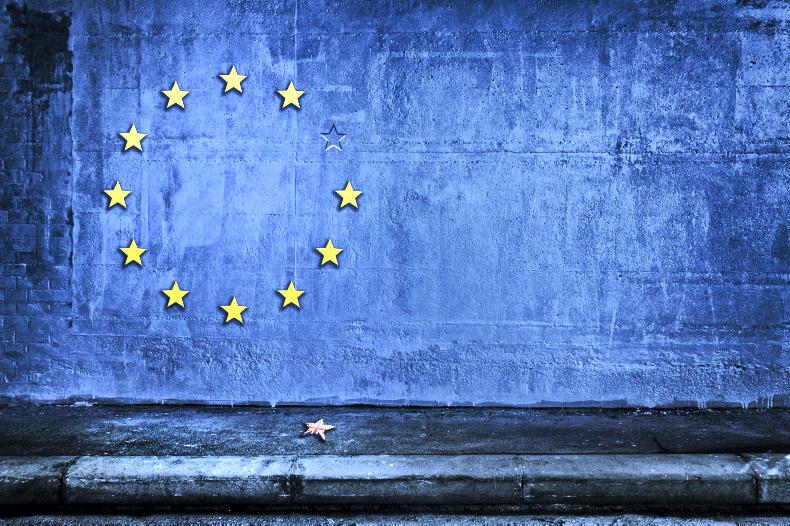Sterling has strengthened following the results of the UK elections on Thursday. In response to this, Irish Farmers Association (IFA) president Joe Healy said: “This further enhances the argument for a beef price increase.”
He also said that, ultimately, a stable government in the UK would probably be better in the long run.
“It now looks very likely that the UK will leave the EU on 31 January, based on the withdrawal deal negotiated by Boris Johnson. However, the most difficult negotiation is probably still to come, as the UK and the EU try to agree a free trade agreement (FTA),” he said.
Transition
He acknowledged that the transition period will be the most immediate risk if it is due to end on 31 December 2020.
“It will be almost impossible to agree an FTA by then,” he said.
“This means that an extension to the transition period is likely to be required. If this extension can’t be agreed, we could face a potential cliff edge on 31 December 2020.”
The new EU Trade Commissioner Phil Hogan will be a key player in the FTA negotiations.
Much-needed clarity
ICSA president Edmond Phelan said the outcome of the UK election will hopefully bring much-needed clarity to the Brexit process.
“While hoping for a reversal of Brexit was always wishful thinking, there is now little doubt that Boris Johnson’s withdrawal deal will be ratified in the House of Commons.
“The key issue of negotiating a trade deal remains. The UK is our biggest market for beef and it is crucial that unhindered access is protected at all cost.
"In the meantime, the improvement in sterling as a direct result of the election outcome must be reflected in an immediate rise in base prices. Factories have no more excuses left to hide behind; the time for them to act on price is now,” he added.
Read more
Trump orchestrates closure of WTO's trade court
Brexit clarity emerges with Conservative majority
Tesco washing its hands of below-cost selling – ICSA
Sterling has strengthened following the results of the UK elections on Thursday. In response to this, Irish Farmers Association (IFA) president Joe Healy said: “This further enhances the argument for a beef price increase.”
He also said that, ultimately, a stable government in the UK would probably be better in the long run.
“It now looks very likely that the UK will leave the EU on 31 January, based on the withdrawal deal negotiated by Boris Johnson. However, the most difficult negotiation is probably still to come, as the UK and the EU try to agree a free trade agreement (FTA),” he said.
Transition
He acknowledged that the transition period will be the most immediate risk if it is due to end on 31 December 2020.
“It will be almost impossible to agree an FTA by then,” he said.
“This means that an extension to the transition period is likely to be required. If this extension can’t be agreed, we could face a potential cliff edge on 31 December 2020.”
The new EU Trade Commissioner Phil Hogan will be a key player in the FTA negotiations.
Much-needed clarity
ICSA president Edmond Phelan said the outcome of the UK election will hopefully bring much-needed clarity to the Brexit process.
“While hoping for a reversal of Brexit was always wishful thinking, there is now little doubt that Boris Johnson’s withdrawal deal will be ratified in the House of Commons.
“The key issue of negotiating a trade deal remains. The UK is our biggest market for beef and it is crucial that unhindered access is protected at all cost.
"In the meantime, the improvement in sterling as a direct result of the election outcome must be reflected in an immediate rise in base prices. Factories have no more excuses left to hide behind; the time for them to act on price is now,” he added.
Read more
Trump orchestrates closure of WTO's trade court
Brexit clarity emerges with Conservative majority
Tesco washing its hands of below-cost selling – ICSA






 This is a subscriber-only article
This is a subscriber-only article










SHARING OPTIONS: